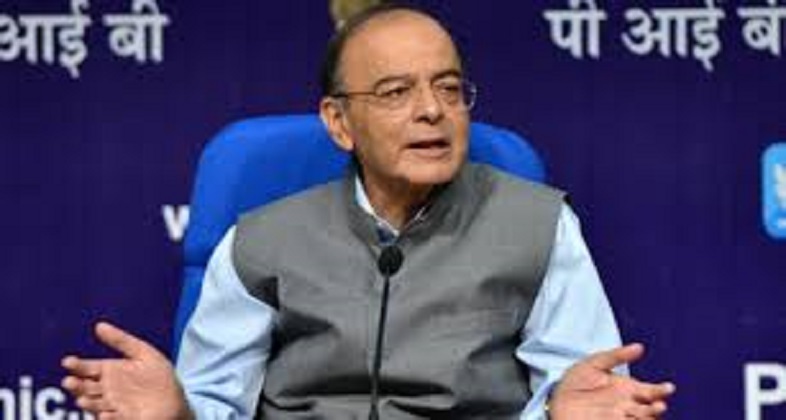
Finance Minister Arun Jaitley Sunday hit out at the “critics and cynics” who blame GST for growth deceleration, saying the indirect tax reform had only a “temporary” impact on growth and that too for two quarters.
In remarks in fact aimed at former Reserve Bank governor Raghuram Rajan, who Friday blamed the GST roll-out along with demonetization for lower GDP growth, Jaitley said the economy recovered fast from the limited “disruptionist impact” of the tax reform.
But the minister was silent on Rajan’s criticism of the note-ban, which has disrupted everyone’s life in general and that of small traders and small businesses in particular.
Though the stated objectives of the move were to curb black money and choke the channels pumping in fake notes into the economy, the RBI in July had stated that as much as 99.3 percent of the canceled notes had come back to the system and also cash in circulation had topped the pre-note-ban days.
Interestingly, the government did not celebrate the second anniversary of the controversial decision on November 8, unlike the first anniversary when it had listed out the benefits of the move as increased taxpayers’ base and higher digital transactions.
Jaitley described GST as a “monumental reform” that impacted growth for just two quarters, as GDP numbers since then climbed up to 7, 7.7 and 8.2 percent in the subsequent quarters.
He was also quick to point out that these numbers are much higher compared to 5-6 percent achieved between 2012 and 2014 under the previous government.
The minister said ever since the Narendra Modi government assumed office, the country has been able to retain its position as the fastest growing major economy.
Delivering a lecture in the US Friday evening, Rajan, whose three-year stint at the RBI ended in September 2016 — two months before demonetization and almost a year before GST implementation in July 2017 — had termed the twin moves as “hard blows” to the economy when global growth was much better, thus the country losing out from the rest of the world.
“The two successive shocks of demonetization and GST had serious impacts on growth, which has fallen off interestingly at a time when the global economy was picking up fast,” Rajan had said.
“The reality is that 7 percent growth is not enough for the kind of people coming into the labour market and we need jobs for them. So, we need more and cannot be satisfied at this level (of growth),” Rajan had added.
Jaitley said “reforms,” including GST, demonetization and the much-contested Aadhaar, have ensured greater formalization of the economy and made available extra resources which are now being utilized for building infrastructure, rural roads and also for paying for various social sector schemes aimed at uplifting the masses.
“Leaders should not be cowards, they should be decisive decision-makers who should have the capacity to take these decisive decisions, bear the criticism, and eventually in the larger interest of the nation, implement them,” Jaitley said.
Within the first year of GST implementation, Jaitley said the number of people who registered for GST has gone up by 74 percent and the government has also been able to bring down tax rates for as many as 334 commodities than previous levels.
He reiterated that the Aadhaar and the schemes working through it are alone has helped save over Rs 90,000 crore and welcomed the Supreme Court order upholding the biometric-based identity project, though with many conditions.
The minister gave out a list of a slew of schemes where the government has been able to devote resources because of the additional resources across sectors.

Post Your Comments